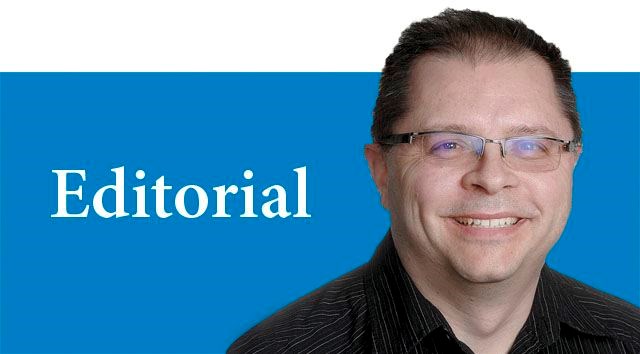The limits of political power are on full display this week.
What connects former FBI director James Comey's Senate testimony, Premier Christy Clark recalling the Legislature to hold a confidence vote and Mayor Lyn Hall's memo to city council about the proposed transit maintenance facility is the degree to which elected officials must bow to legal process and public pressure.
Many politicians have been elected to various offices on the promise to run that level of government more like a business, suggesting they will be fiscally responsible with quick, decisive action on important files. To some voters, perhaps, this has meant the elected official can ignore political protocols and convention, instilling a "the buck stops here" top-down style.
That's certainly what Donald Trump said when he ran for president on his business record and then proclaimed last summer to the Republican National Convention that nobody can fix the system but him because no one knows the system like him.
The problem is that any employer, whether they are in the public or private sector, has exact limits set on their authority. They don't get to run their business and direct their employees as they see fit. For example, the Employment Standards Act in B.C. sets rules on pay, hours worked and so on.
Meanwhile, municipal governments grant business licences, have bylaws in place on operations and require permits for building improvements.
So even the mayor, the premier and the president of the United States, the so-called most powerful man in the world, answer to the law and, eventually, to their bosses, the voters.
In the case of Comey speaking publicly about his private meetings with Trump before the president fired him, the mild-mannered career lawman did not mince words when questioned by senators. CNN's mid-morning tweet succinctly and bluntly summarized the morning's events: "James Comey: President Trump lied. White House: No, he didn't."
If Trump lied, that has potential legal implications. The American president can be charged with obstruction of justice if he interfered in a criminal investigation or ordered an investigation stopped because one of his buddies was caught in the probe.
Premier Clark is also being held back by the law but in much different circumstances. In her case, her lack of a majority of seats in the Legislature, combined with the fact that her two political opponents, with fewer individuals seats than her but one more combined seat than she has, has brought constitutional law and government precedence into play.
She was sworn in as premier on Thursday but that could only last two weeks, until the vote in the Legislature, set for June 22. If she and the Liberals lose that vote, she is out as premier, regardless of voter preference. Potentially, the NDP's John Horgan will become premier with the support of Andrew Weaver and his two fellow Green MLAs, again regardless of voter preference.
The voters had their say May 9 but now the constitutional and legal process is at work, with rules drafted to clarify unusual situations just like this one.
In the same way that it is not illegal for Horgan and Weaver to combine their votes and force Clark out of office, there is a legal process in place for Trump to be removed from office, despite the fact more than 50 million Americans voted for him. The mechanism is difficult and complicated, as it should be for such a drastic act, and the president has every legal opportunity to defend himself but there are protocols for how it could happen and what would happen afterwards, starting with the swearing-in of Mike Pence as president.
Meanwhile, in Prince George, the mayor released a memo saying city council will look at directing city staff to find a different location for the proposed bus facility. Public pressure and voter outrage less than 18 months before the next municipal election contributed to the about-face from a city council that seemed unified behind the merits of the project when it was announced in early March.
In other words, regardless of jurisdiction, politicians in working democracies don't get to do what they want, when they want, unconditionally, despite what it looks like sometimes. That's a comforting thought, regardless of one's politics.
-- Managing editor Neil Godbout



